Table of Contents
ToggleMedication Therapy Management (MTM) is a service that empowers patients to optimize the use of their medications. With the rising complexity of healthcare, especially for individuals with chronic conditions, MTM serves as an essential tool to ensure that patients not only take their medications correctly but also achieve the best possible therapeutic outcomes. MTM is a collaborative process where healthcare professionals, particularly pharmacists, work closely with patients and their other healthcare providers to review and manage their medications.
The core aim of MTM is to ensure that medications are used appropriately, safely, and effectively. It’s not just about filling prescriptions, but about providing comprehensive, patient-centered care that improves overall health and reduces unnecessary healthcare costs. By addressing issues such as drug interactions, incorrect medication use, and non-adherence, MTM aims to improve patient health outcomes while reducing the risk of adverse drug events.
In this blog, we’ll explore the top benefits that MTM brings to the healthcare landscape, along with some of the challenges that are preventing it from being fully implemented in many healthcare settings. We’ll look at how MTM enhances the patient experience, its role in reducing healthcare costs, and the barriers that both patients and providers face in utilizing MTM effectively.

Benefits of Medication Therapy Management (MTM)
1. Improved Medication Adherence
As discussed earlier, medication adherence is a major issue in healthcare. MTM programs address this by ensuring patients understand their medication regimens, the importance of taking medications consistently, and the consequences of missing doses. Pharmacists provide counseling on the correct use of medications, offer reminders, and help patients overcome barriers to adherence.
For patients who take multiple medications, MTM can be crucial in improving their understanding of the regimen and ensuring the correct timing and dosage. This helps reduce the risk of complications and improve the effectiveness of treatment.
Real-life example:
A patient with multiple chronic conditions like diabetes and hypertension may be prescribed several medications. Through MTM, pharmacists can ensure the patient understands how each medication works and its purpose, leading to better adherence and improved health outcomes.
2. Reduced Risk of Adverse Drug Events (ADEs)
Adverse drug events are a significant concern in healthcare. ADEs can lead to hospitalizations, prolonged recovery periods, and even death. MTM plays a vital role in identifying and preventing ADEs by reviewing patients’ medication regimens for potential drug interactions, duplications, and side effects.
Pharmacists conduct thorough medication reviews to identify any discrepancies or issues that could lead to adverse effects. By addressing these issues early, MTM helps patients avoid serious health complications. Pharmacists can also adjust medications based on patient-specific factors such as age, kidney function, and comorbidities.
Example:
A study of elderly patients taking medications for various conditions found that MTM services helped identify harmful drug interactions that could have led to serious side effects. As a result, the patients experienced fewer hospitalizations and better overall health.
3. Personalized Medication Plans for Chronic Disease Management
MTM plays a key role in managing chronic diseases such as diabetes, hypertension, asthma, and heart disease. Patients with these conditions often require complex medication regimens, and MTM services ensure that their medications are optimized for their specific health needs.
Pharmacists help coordinate care by working with other healthcare providers to adjust medications as necessary. For example, if a patient with heart disease is prescribed multiple medications for different conditions, MTM can ensure these medications work together without causing harmful interactions.
Case Study:
In a program for patients with diabetes, MTM services helped ensure that insulin doses and oral medications were aligned. Pharmacists also worked with physicians to recommend lifestyle changes that complemented medication therapy, resulting in improved blood sugar control and fewer complications.
4. Cost Savings for Patients and the Healthcare System
While MTM services require upfront investment, they can lead to significant cost savings over time. By preventing hospital readmissions, reducing adverse drug events, and optimizing medication regimens, MTM services help lower the overall cost of care. Fewer complications mean less need for emergency visits, hospital stays, and costly treatments.
For patients, MTM can also help reduce out-of-pocket expenses by ensuring they are not paying for unnecessary medications. By reviewing medication regimens, pharmacists can identify cheaper alternatives or adjust dosages to avoid unnecessary costs.
Example:
A healthcare system that implemented MTM services for patients with chronic conditions reported a 20% reduction in hospital admissions, which saved the system millions of dollars. These savings were largely due to the reduction in preventable complications and improved disease management.
5. Enhanced Patient Satisfaction and Empowerment
MTM services can significantly improve patient satisfaction. By offering personalized counseling and addressing patients’ concerns, pharmacists help patients feel more in control of their health. MTM services often involve follow-up sessions to ensure that patients are adhering to their medication regimen and to address any new concerns or issues.
Patients also feel more empowered when they understand the medications they are taking and the role they play in their treatment. MTM can enhance the patient-provider relationship by building trust and encouraging open communication.
Example:
A patient with asthma who participates in MTM services feels more confident in managing their condition. The pharmacist explains how to use the inhaler properly, discusses potential side effects, and provides additional resources. As a result, the patient reports feeling more in control of their condition.
Challenges in Medication Therapy Management (MTM)
While MTM offers numerous benefits, several challenges hinder its broader implementation in healthcare settings.
1. Lack of Awareness and Understanding
Despite the clear benefits, many patients and healthcare providers are not fully aware of MTM services or how to access them. Patients may not know that they are eligible for MTM, or they may not fully understand the value of these services. Healthcare providers, especially those in primary care or specialized fields, may also lack awareness of MTM or may not have the resources to integrate it into their practice.
Increasing awareness and educating both patients and healthcare providers about the benefits of MTM is crucial for improving its uptake. Health systems and pharmacies must engage in outreach efforts to promote the value of MTM services.
2. Financial Barriers and Limited Reimbursement
One of the significant challenges to widespread MTM adoption is the issue of reimbursement. Many insurance plans do not offer adequate reimbursement for MTM services, making it difficult for healthcare providers to offer these services without financial strain. Low reimbursement rates often lead to reduced access to MTM, particularly for patients who are uninsured or underinsured.
Healthcare providers may be reluctant to offer MTM services if they are not financially compensated, and patients may not seek out MTM if they cannot afford the service. Advocating for better reimbursement models and expanded insurance coverage is necessary to overcome this barrier.
3. Access to MTM Services
Access to MTM services is another challenge, especially in rural or underserved areas. Many pharmacies and healthcare facilities do not have the resources or infrastructure to offer MTM services, and patients in remote areas may not have easy access to these services. Additionally, patients with mobility issues or those who rely on transportation services may find it difficult to attend in-person MTM sessions.
Telehealth and remote consultations offer a potential solution to increase access to MTM services. By using virtual platforms, patients can receive counseling and medication reviews from the comfort of their homes, reducing the barriers to access.
4. Fragmentation of Care
MTM programs often require coordination among multiple healthcare providers, which can be difficult when patient care is fragmented. When patients see different providers for various conditions, it can be challenging to ensure that all providers are aware of the patient’s medication regimen and potential drug interactions. This lack of communication can lead to medication errors and suboptimal care.
Improving the integration of electronic health records (EHR) and encouraging better communication among healthcare providers can help address the issue of fragmented care. A more coordinated approach to patient care will enhance the effectiveness of MTM services.
5. Time Constraints for Healthcare Providers
MTM services require time and effort from healthcare providers, especially pharmacists. For pharmacists, who are already busy with dispensing medications and managing other tasks, providing comprehensive MTM services can be time-consuming. Limited time and high patient loads make it challenging to offer in-depth MTM services to every patient who needs them.
Investing in technology, additional staffing, or streamlining processes can help mitigate these time constraints and allow providers to offer more effective MTM services.

Conclusion
Medication Therapy Management (MTM) offers a wide range of benefits, from improving medication adherence to reducing healthcare costs and enhancing patient satisfaction. However, challenges such as lack of awareness, financial barriers, and access limitations prevent many patients from fully benefiting from MTM services. As the healthcare system continues to evolve, addressing these challenges will be crucial for expanding the reach and impact of MTM services. With proper education, improved reimbursement models, and better access, MTM has the potential to transform patient care and improve health outcomes across the board.






